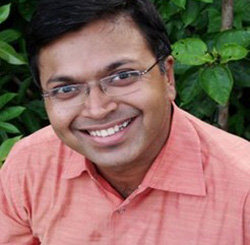Of Alexander, technology, design and Infosys
 ultural differences between India and the West can be traced to an encounter on the banks of Indus way back in 326 B. C., says Devdutt Pattanaik.
ultural differences between India and the West can be traced to an encounter on the banks of Indus way back in 326 B. C., says Devdutt Pattanaik.
Alexander the Great and a sage debated for long which of them was doing more for humanity but failed to see each other’s point of view.
As the Chief Belief Officer with the Future Group chain that owns Big Bazaar, Pattanaik interprets the business world through the lens of mythology, and that’s his job. He believes mythology shapes thinking and in turn practices.
He is among the 45 “out-of-the-box thinkers” who will put forward their views at the much-celebrated TED (Technology, Entertainment, Design) conference that got underway on Thursday.
It is the first time India is hosting the meet launched 25 years ago in California, US, as a technology meet-up, but has since diversified to include various other fields.
The year’s theme is “The Future Beckons”.
And, according to one of the speakers, it is looking good for India and China.
Hans Rosling, a professor of global health at Sweden’s Karolinska Institute, predicted that by 2048, India and China’s per capita income will match that of the developed world.
“Rich nations have to change the way they see the developing world,” he said.
Over the course of three days, academics, entrepreneurs, musicians and filmmakers will deliver what the TED website says are the “talk of their lives”.
“It’s long been my dream to host TED in India,” said TEDIndia director Lakshmi Pratury.